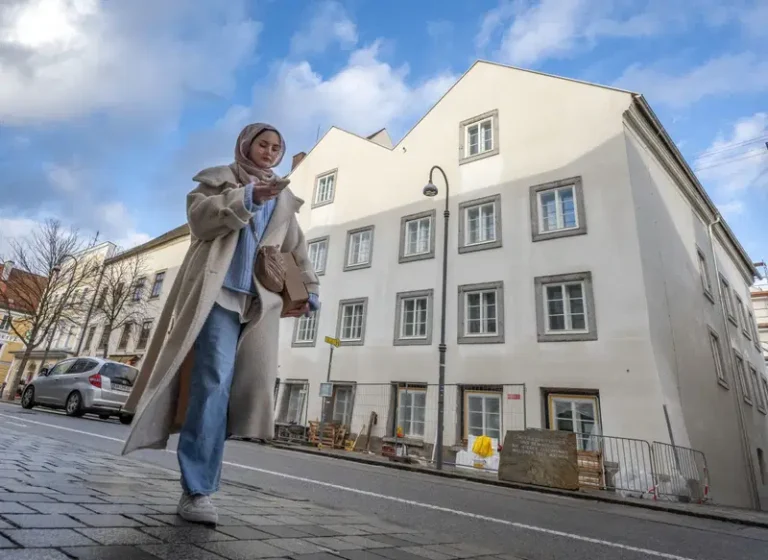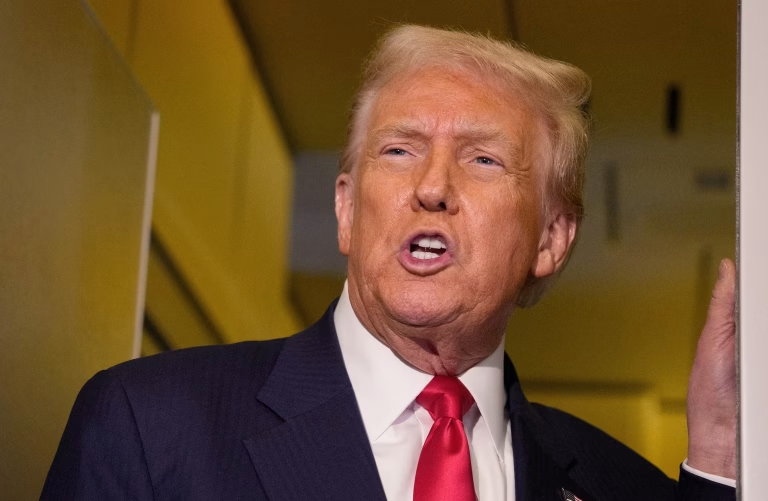 Chief Engineer at the Nigerian Airspace Management Agency, Mrs. Felicia Agubata
Chief Engineer at the Nigerian Airspace Management Agency, Mrs. Felicia Agubata
The Chief Engineer at the Nigerian Airspace Management Agency, Mrs. Felicia Agubata, who is also the President, Association of Professional Women Engineers of Nigeria, in this interview, gave an insight as to why Nigeria has maintained good safety record in air travel and also spoke about the advocacy to encourage the girl-child to develop preference for science education. Chinedu Eze brings the excerpts:
What do engineers at the Nigerian Airspace Management Agency (NAMA) do?
What we do specifically is that we maintain and install the landing and additional aid that allows the aircraft to move from point A to point B, including surveillance systems and communication systems that is basically what we do. To ensure that equipment needed for safety of air navigation is in good condition at all times.
Many people do not know the strategic job that engineers do to ensure airspace safety?
Engineers are the bedrock of the industry. Without engineers there will be no aircraft repairs. For an aircraft to move from point A to B, you need those facilities to be in place: the air traffic controller who is going to give start up and land the aircraft is going to use equipment to do that. That equipment is radio for communications. As the aircraft is in-flight the aircraft is going to move from point A to point B, it will be on communication throughout the flight. Engineering equipment include radio, surveillance systems, navigational aids like instrument landing systems and communication systems. They are maintained and installed by engineers and that is how critical engineers are in the engineering profession.
While engineers’ job in the system is important, only air traffic controllers are known, why?
Yes, we are the men and women behind the scene. I keep on telling people that we are men and women behind the scene. Nobody sees what we do, hear about us and we are the one that makes things happen behind the scene. Just like engineers in broadcasting stations, nobody sees them and you only see the news casters, producers; nobody see the engineers who are behind and makes sure that the light are on. We ensure that all the instruments and equipment meant for safe air navigation within Nigeria airspace are in good condition.
I know that most technical areas in the aviation industry are dominated by men, do you think women are coming up?
I would say women are making progress and we are not yet where we want to be; to me I believe we are not yet where we want to be that is why we will continue our advocacy. Presently we have two females who are general managers in the directorate; one is retired and the other is still there. That is a voice to be heard. Out of six or seven general managers in the department, we have two females. That is okay; we can manage that. We are not saying that we should be appointed or be given that position based on gender; no, we are saying that competence and skills should define us at all times.
What would you say about their output, would you say they are efficient?
They are very efficient and women are more efficient in terms of any work given as they multitask and can do some many things at the same time and provide the deliverables.
Does the system discriminate or encourage women?
The system encourages women, especially with the present management, the system encourages women even the directorates encourage women to come onboard to build and advance their careers. So, I think we are having it good, because the system encourages women to be who they want to be not because we are women, but because we are bringing some skills and some competence to the table, as we are not going to wait to be called to the table.
Many in the industry say you have taken Association of Professional Women Engineers of Nigeria to new heights as its President. How were you able to achieve that?
The Association of Professional Women Engineers of Nigeria was officially founded in 1982, but it was launched in 1983, that makes us 37 years old. And we are a non-profit, non-governmental educational service organisation that advocates for the girl child to take up Science, Technology, Engineering and Mathematics (STEM) that would lead them to a career in engineering. Our main focus is to encourage more females to take science and technology that will lead to a career in engineering. In the past two years I have happened to be the 15th President of the Association that is 2018 to 2019, we are able to launch a flagship programme we called ‘Invent Build Programme, where our advocacy is down to the primary schools; because we need to catch them young, we need to encourage people from primary five and six to take up interest in mathematics, because mathematics is key. If we do not demystify mathematics at this lower primary school level it becomes difficult for them to have interest in science. That was what we did and we moved round the geo-political zones, we selected seven states in particular to launch this project, we awarded scholarships to 81 students, pupils from this seven states and we have constructed ultra-modern science and technology laboratory in two states, while work is in progress in remaining five states.
We want to produce many girl-child engineers in the next 10 to 12 years, because we believe that science is life and STEM is an economic driver and engineers are problem solvers. So, we want to produce as many engineers as possible, who will not just study engineering, but also, practice engineering. We are sponsored by NNPC. It is the organisation that paid for the construction of the laboratories, scholarships; so those children are funded from primary school to the university level all sponsored by NNPC. They are 81 students selected by APWEN. So NNPC is touching lives. Moving round this seven states in six geo-political zones has taught me lessons that people are suffering, what people need is just basic things of life, some children do not have uniform to come go to school, we need is a wake-up call. Everybody is a product of a community, we should go back to our community and give back no matter how little, it could be exercise book, pen as some are writing with cut pencils in schools, some are sitting and reading on the floor. Even if it is one chair you donate to your community do it, even if it is textbooks, exercise books do it. We have sponsors that donated books.
When you talk or interact with these girls do you talk to them about aviation?
Aviation is all encompassing. First of all, before you can be in aviation you need to have a degree. Having an engineering degree qualifies you to also be in aviation. You can be a pilot with an engineering degree, you can be an air traffic controller or air traffic engineer, so it sets you apart from others; it gives you more leverage. You can also be an avionic engineer, aircraft maintenance engineer, so it gives you a lot of latitude for you to venture into many things.
From your experience what are the preferred courses or fields in aviation that women have predilection for?
The narratives are changing, the competition has changed and is no longer like before when women want to be cabin crew, no. I have seen young girls who want to be mechanical engineers, who wants to be astronaut, you need to dream big, we need to teach our female children to be brave, with our advocacy we are closing the bravery deficit gap-that is the gap that makes a woman not to think and aim high and makes a woman to think that because she was born a girl that the parents can only buy her pink toys, berby dolls for her to plait hair, and then get those kitchen utensil to cook and marry.
In the Nigerian situation, is there any discrimination in terms of employment requirements; does any government policy discriminate against women?
To my knowledge there is no policy that discriminates against the employment of women. That is why I call myself a she-engineer. I am not a woman engineer, there is nothing like a woman engineer it does not exist. What exists is that we have women who are in engineering. The qualification is the same, we go through the same tests in school, the same JAMB and there is no JAMB question for female students and different one for male students, we enter the university course for both male and female, you graduate either as first class, second class etc. Also in the employment market it is the same, but I am talking to you about what they call bravery deficit from our own nature. We should train our children, including girl-child to be brave, because the men are trained to be brave from birth; that is why a father or a mother would buy the boy the car racer, and a toy gun for him, making him to be creative, but the girl you buy her baby dull to be plaiting hair and that is why we have less number of women in some certain career areas, even in board rooms, but we have to close that gap. We would continue in our advocacy to ensure that our girls are creative and brave. That is why I would keep on saying let our competence, skill be what we bring us to the table, do not call me to the table just because am a female, call me to the table because of what I can do, because I am competent. That is where we are going. We have presently multinational companies that now have gender and diversity policy in their companies. There is nothing wrong with that, but they would also tell you that they are not doing this diversity policy because they want to lower the standard, no, but they only want to give opportunity, because women are not wired to do brave things, they want to wait until everything is perfect, so we need to continue on that advocacy, to lift each other up.
At this time in the aviation industry would you say things are looking better than in the past in terms of safety, personnel, beyond NAMA; I know there used to be a lot of expatriates, do you think that scenarios is still existing or there is an improvement?
Let me say something, I must give it to our people who are engineers. The last time we had a maintenance contract for TRACON (Total Radar Coverage of Nigeria) was several years ago. That equipment has been under the maintenance of NAMA with internally generated Nigerian engineers from this agency. We have been the ones maintaining the system; that is safety, building capacity and we have built this capacity over the years; that is the agency for you. Presently, I am not saying we are where we want to be, but there is a lot of improvement and the only thing you can do is keep on improving and improving. There is always an area for improvement no matter how good you think you are, but I am saying the management of the agency has done excellently well and we have to give them kudos for them to continue, we have not had any accident for several years now, that is thump up for them.
It is about collective hard work over the years and it has worked, but if they keep on this pace they would continue to make further progress. (THISDAY)







391547 392968Today, I went to the beach with my kids. I found a sea shell and gave it to my 4 year old daughter and said “You can hear the ocean if you put this to your ear.” She placed the shell to her ear and screamed. There was a hermit crab inside and it pinched her ear. She never wants to go back! LoL I know this is completely off topic but I had to tell someone! 626956
804023 38482Hello! I basically would like to give a huge thumbs up for the fantastic info youve here on this post. I may be coming back to your weblog for far more soon. 574776
152360 277134I undoubtedly did not realize that. Learnt something new today! Thanks for that. 372857